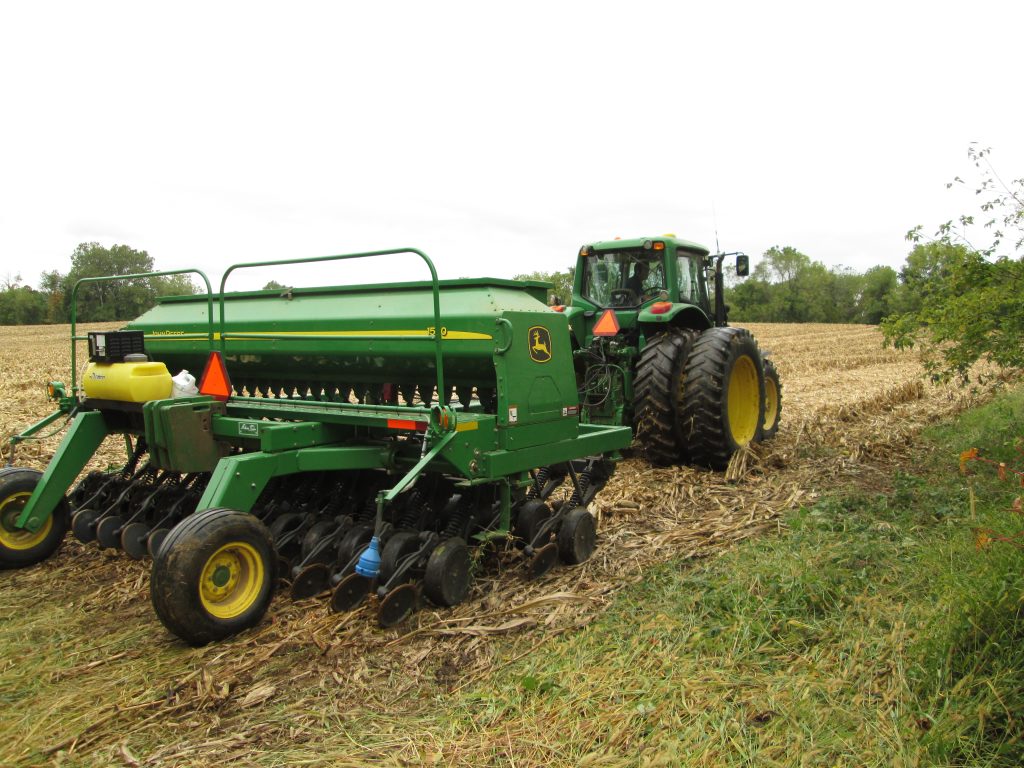
New research shows how organic farming promotes soil health and fuels crop growth
| December 2, 2024
Organic fertilizers like manure can better nurture the soil microbes necessary to support crop growth and promote plant resilience, according to recently published research on the long-term effects of organic farming versus conventional methods.
The first published research from a six-year collaboration between the Stroud Water Research Center and the Rodale Institute reveals that the type of fertilizer used affects how microbes, especially fungi, form in soil. Other organic practices, such as no-till planting, which minimizes mechanical manipulation of the soil, had fewer clear effects on the microbes that help plants thrive.
Microbes in soil make it easier for plants to access the nutrients they need to grow, affect the hormones that drive crop growth and make plants more resilient to stressors, like drought and heat.
Understanding how various soil microbes interact with each other and with plants is complex. Soil health scientists researching how microbes help plants are doing work similar to medical researchers seeking to understand how bacteria in the human gut help people absorb nutrients from food — an analogy that Stroud senior research scientist Jinjun Kan uses in his college lectures.
Soil health scientists and human gut biome researchers face similar challenges, said Melinda Daniels, a Stroud senior research scientist and one of Kan’s collaborators.
Being able to pinpoint what microbes are present is just the first step, Daniels said, adding that it will take much more time to understand how microbes interact with each other and with their environment.
“There’s so much research going on with that, and they’re learning so much every day,” Daniels said, “but it’s so complicated.”
Nitrogen is both helpful and harmful
Nitrogen is an important nutrient for plant growth but also one of the primary pollutants that washes from crop fields into local waterways.
If soil does not contain a healthy community of the microbes that help keep nitrogen in the fields where it is accessible to crops, it becomes mobile and can quickly contaminate groundwater, streams and rivers.
Synthetic fertilizers often contain excess nitrogen that suppresses microbe growth. Such fertilizer is also one of the biggest expenses for farmers, Daniels said.
The research from the Stroud-Rodale collaboration reveals that organic fertilizer, like manure, versus synthetic fertilizer makes a “huge difference” to the health of the microbes in crop fields, Daniels said.
The effect of cover crops on soil microbes is harder to measure and research results on that question were not as clear, Kan and Daniels said. Cover crops are grown in the off season to benefit the soil. While some are harvested, they are not typically a cash crop but rather a way to prevent the soil from being bare between plantings. They can be tilled into a field before the main harvest, increasing the soil’s carbon content in a way that promotes microbe growth.
Rotating between soybeans and corn can also increase nitrogen in the soil, as legumes like soybeans foster bacteria on their roots, which help take nitrogen from the air and fix it to the soil.
Research drawing attention elsewhere
The collaboration between Stroud and Rodale covered two research sites. The Rodale Institute in Berks County, Pa., has long been a proving ground for organic farming techniques, and Rodale and Stroud scientists are working to publish additional research on soil health and water quality impacts from organic versus conventional farming.
At the Stroud Preserve in Chester County, scientists partnered with farmer Jamie Hicks to convert some fields that had been conventionally farmed for at least 30 years to organic practices. That transition began in 2018, giving researchers six years of data on soil and water impacts.
Other conservation workers not directly involved in the Stroud-Rodale collaboration are already looking at the soil health papers for insight.
The research provides an in-depth look at how organic practices can change soil’s physical and chemical characteristics in ways that affect microbial communities, Alexandra Neumann, agriculture projects coordinator at Alliance for the Chesapeake Bay, said in an email.
“The next question is, how do the different microbial communities present in different soils or farming systems affect the viability of agriculture and its environmental impacts (e.g., nutrient cycling, nutrient uptake by crops, nutrient losses to groundwater or air)?” Neumann said.
As more results are published, the Stroud-Rodale research could inform farmers, agricultural consultants and conservation educators about site-specific best practices, Neumann said.



![DC_Image [Image 4_Assunpink Meets Delaware] meets Delaware The Assunpink Creek on its its way to meet the Delaware River. The creek passes through woods, industrial and commercial areas and spots both sparkling and filled with litter.](https://delawarecurrents.org/wp-content/uploads/bb-plugin/cache/DC_Image-4_Assunpink-meets-Delaware-1024x768-landscape-14f069364113da5e8c145e04c9f2367c-.jpg)



